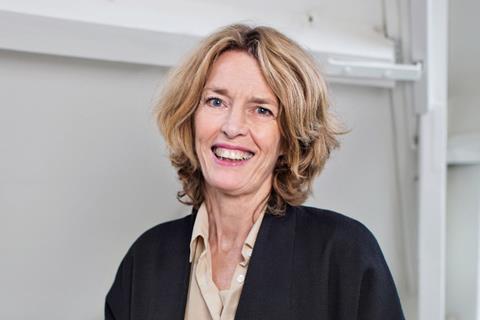
Adriek van Nieuwenhuijzen, IDFA’s long-serving head of industry and her team have been working their way through a record number of submissions, to this year’s Forum. The four-day event of pitching presentations, one to one meetings and industry networking events, will showcase 55 titles from the impressive 820 that were presented.
The projects come in all genres and sizes but some trends are apparent. Budgets are going up. Filmmakers are becoming more focused on coproducing and many are now acknowledging they can no longer rely on the US streamers as financing partners. Several of the films being presented are also addressing the ongoing conflicts in the Middle East, Ukraine and Sudan.
The Forum will take place in Amsterdam’s Felix Meritis and Pathé City from November 17 to 20.
Van Nieuwenhuijzen talks to Screen about what we can expect from this year’s event.
Why do you think you have received such a high number of submissions?
We were also stunned. It is the most ever. Post-Covid, we thought, OK, the figures went up last year because there was a new wave of films after the industry slowed down. But to our surprise, it was 50 or 60 more [projects submitted] than last year.
There are two ways of reading it. It is a good sign that people value IDFA for giving them the opportunity to find creative and financial partners. It is also sign that many filmmakers do need international collaboration to raise a decent budget. This is the optimistic view.
For pessimists, I’m not that pessimistic, it is a sign that people can not find money anymore from their usual sources . But also again reaching out to other sources in not, per se, a bad sign.
And who is providing the potential funding to the projects?
There is a move back to looking at the European broadcasters again in a mix with the European funders. There has always been an immense appetite for international collaborations. That is growing and that is what I see in the projects we selected out of this huge pile. There are a lot of projects that have very interesting and unusual collaborations. For example, Pietra Brettkelly’s Crocodile is a New Zealand-Nigeria project.
I also see Nanyang, a co-production between Denmark and Italy, from Enrico Parentin [and about the daughter of a prominent figure in the Chinese Communist Party). [Producers Elliot Films and Final Cut For Real] have set it up as a co-production and are looking to find more partners within Europe and beyond.
There is a huge range of projects in the Forum. Given they are so different, what is your criteria for selection?
What is always our focal point is that it is a creative documentary. We will never go for, let’s say, a very straightforward for. For us, it is really important either there is a huge urgency or it has an artistic viewpoint that is very new and daring.
Is it correct that budgets are going up?
Quite a few films have quite significant and high budgets. For example, there is The Eighth Continent, a Dutch project [from Luuk Bouwman and Tomas Kaan, about the race for resources in space] that has a budget of a little over €1 million. It’s a very ambitious project as is Nanyang.
In the Netherlands, there is a way of thinking where if we want to make significant international big films, people need to have a significant budget.
There are quite of few [projects with budgets] close or over €1 million budgets, but most projects are in the range of €400,000 to €500,500.
Do you agree with sales agents that public broadcasters are becoming more risk averse and conservative in their doc acquisitions?
I see the sales agents are struggling because they are not able to sell a lot of films and the price they get is not serious enough. All of our hopes were with the streamers for a couple of years but people are starting to see it is just a very few films [acquired by the US streamers]. People realise if they really want to make creative work, bold work, not mainstream documentary, but really with an artistic point of view, then they need a different kind of money.
But the streamers are still welcome at IDFA?
Of course. I am just saying what they can do, what their mandate is, doesn’t solve the issue from the market. The issue is there are too many films, beautifully creative works with a lot of aspirations from talented filmmakers, but there is not enough budget to realise all these films. That is really the issue. The fact that more and more people get the means and opportunity to make films - we welcome a great diversity. But also it means more and more people are entering this market. That’s beautiful but if there is not more money, it will get more and more difficult to raise your budget.
The Forum is dominated by projects by women filmmakers this year. Is that to do with your selection choices or have there been more women filmmakers applying?
Last year, for the first time in many years, we did not reach gender parity in the Forum section. We noticed it but, at the same time, we said these are the best projects and we want to have them. This year, we had no issue whatever. How we work is we first do the selection and then we start looking at it [in terms of gender parity]. This year, the selection was immediately gender balanced.

























No comments yet